
Do you have what you need to make your garden grow?


Garden Center
Store Hours
Mon-Sat:
6:00am - 9:00pm
Sun:
7:00am - 8:00pm
Curbside:
09:00am - 6:00pm
Location
Popular at Your Garden Center
Spring Garden Supplies
Explore Popular Spring Plants
Garden Project Calculators
;Resize=(703,395.44))
Grass Seed Calculator
When you're ready to seed your lawn, our calculator helps you estimate the amount of grass seed you'll need to get the job done.
;Resize=(703,395.44))
Mulch Calculator
Enter your preferred material, the square footage and mulch depth of the coverage space for accurate results.
;Resize=(703,395.44))
Fencing Calculator
We'll calculate the amount of fencing you should purchase based on your property needs.
Shop Outdoor and Garden Brands
Frequently Asked Questions About Gardening
Which planting zone am I in?
Check the USDA planting zone map, as planting zones have changed slightly over the years. Planting zones with higher numbers can plant earlier in the year. Choose plants that are meant for your zone and increase your odds of gardening success.
What's direct sow?
If the ground isn't frozen solid and the soil isn't cold, consider planting your flower, veggie, or fruit seeds directly into your garden. This is called the "direct sow" method. The time to plant will be after the threat of frost is gone for the season, as sprouts and seedlings can't weather those conditions. You can also start your seeds indoors if you'd like. Consult your seed envelope for when and how to sow seeds.
How do I plant seeds?
Follow the directions on your seed packet. It'll tell you when to start them indoors and when to direct sow. Generally, you'll add three to five seeds per planting hole, then press them into the soil at the correct depth. Mark where you planted them with a wooden craft stick, flag, or twig so you don't mistake them for weeds later.
Do I have to harden off my seedlings before planting them outside?
Yes, for best results, if you raised plants indoors from seeds in your own plant nursery, harden them before you transplant them. Hardening allows your seedlings to adjust to outdoor life and the fluctuating spring weather, making them more resilient against cold snaps. It slows their growth until they're strong and ready to take off during a spring warm front.
What do I do before planting transplants or seeds outside?
Before you plant, make sure that the soil is healthy, it's warm enough outside, and your plant will have the right amount of sun. Check your seed packet to see if it likes shade, full sun, or partial sun, as well as what time of year it should be planted. Space your plants as described on the seed envelope for best results so your plant babies have room to flourish.
Should I use peat moss starters or coir starters?
Seed starters, full of nutrients in convenient pellets or pots, work for new and experienced gardeners. You don't have to use these starters if you're planting in soil, but you may want to. Starting seeds in peat pots works best for delicately rooted plants like cucumbers and eggplant, as well as flowers that need acidic soil. Some people prefer coir starters instead, as they have a neutral pH. Check what type of soil your plants need to help narrow it down, and chat with a garden center associate if you need more info.
Garden Project Ideas
The Home Depot Garden Center at N Tucson (Oro Valley)
The Home Depot's Spring Deals
Find some of the best savings of the season with our Spring Deals sale. Spring cleaning applies both indoors and outdoors, so upgrade your lawn and garden with gorgeous flowers. Remember to check out our outdoor power equipment as well. Save on everything you need during our spring sale, which runs only from April 24th through May 7th. Don't miss out on these deals.
Set Up For Springtime
On beautiful spring days, tidy the yard before everything blooms in earnest. You can also add beauty and interest with water features, hardscaping, and stonework. Don't forget to clean the shed and sweep out the gazebo in preparation for spring, too. No matter what outdoor projects you choose to tackle and which plants you need, you'll find that The Home Depot Garden Center in N Tucson (Oro Valley) is your local plant nursery to help you enjoy your spring activities to the fullest.
Plant Hardiness Zones Explained
The first thing to learn when planting spring flowers, vegetables, and other seeds is your planting zone. Every location in the U.S. and its territories is sorted by climate. Find your zone on the USDA planting zone map and learn when to plant seeds.
For example, you could transplant bell peppers outdoors in mid-March in Zone 10, but not until the end of May in Zone 4. The plants that'll thrive in your area are in your zone — plus all the zones numbered less than that. In other words, a Zone 7 garden can support plants listed as Zones 1–7. You can plant seeds indoors roughly a month before you can plant them outside, known as direct sow. Always read your seed packet for details. If you start plants later than recommended, it's not ideal, but it should even out as time passes.
Gardening in Your Growing Zone
The diverse topography of this area means planting times vary widely. Desert areas are in Zones 7-10, depending on location, and areas with more elevation are in chillier Zones 4–6. Both mountains and deserts can have extreme conditions, so consider indoor gardening as a supplement to growing outdoors if possible.
In the desert, native plants like succulents, cacti, and other hardy desert shrubs will grow outside with ease. Other beloved garden vegetables love the heat, like nightshades. If you start them indoors and carefully introduce them outdoors in the shade, you can enjoy raising vegetables even in a dry climate. However, many flowers, both annuals and perennials, are sensitive to that much heat and sun, so research to find which varieties can handle the weather before planting outdoors.
Colder regions in Zones 6–8 should wait a little longer to plant, and all these zones need to wait an additional month before planting seeds outdoors rather than indoors. Mountainous regions in Zones 3 to 5 will have the shortest growing season, with seed starters going in later in the spring. Although the weather may vary, waiting until the frost has passed will give your seeds the best chance at a healthy and hearty life.
Check out certain herbs and cruciferous veggies if you're ready to get planting. This includes cabbage, broccoli, and kale. Greens like artichokes, spinach, and fragrant herbs, including basil, parsley, and oregano, also don't mind an early beginning. In Zones 4–6, traditional garden vegetables like peppers of all kinds, cucumbers, and tomatoes are fine with an early spring or late winter start indoors under the grow lights.
Start Seeds Indoors
Grow your garden from seeds by starting them indoors in your own plant nursery. We've got all the seed starter supplies you'll need. Make sure you have a warm and sunny spot that gets at least 12 hours of light. Then you have everything you need to try growing seeds. Early spring light isn't usually strong enough, so we recommend extra lighting to keep those seeds warm enough to germinate.
Measure your finger to use it as a ruler. In general, you'll plant 3–5 seeds, then press them into the soil to the depth you need with your finger. Mark where you planted the seeds with a toothpick or plant tag. That way, you'll know where your seeds should pop up, and you can be sure they're not weeds. Otherwise, it'll be a surprise when the sprouts push out of the soil.
Sprouts
When your seeds have sprouted but aren't ready to go outside yet, you can still prepare them for outdoor life. These micro-seedlings are fragile — only an inch or so high, with the tiniest seedling leaf or two — but they're resilient. Seedlings don't get all this pampering in nature when they volunteer and grow wherever they please, so they can handle more than you think. However, don't go overboard, as your sprouts are still babies. You can even use an oscillating fan on low to mimic the wind and strengthen their stems.
Harden Your Seedlings
Make sure to harden your seedlings for best results when they're grown. On days above 45 degrees, take your pots or trays of seedlings outside to slowly warm in the shade for a couple of hours, but bring them inside at night. Cloudy days are fine, but no direct sunlight or harsh nighttime chills yet. After a week or more of this, you can leave them out overnight if the temps stay warmer than 50 degrees. Cover your plants if they're in the ground when a late-season frost sneaks back in.
Transplant Young Plants Into Their New Homes
When your plants have three or four true leaves — different from mini seedling leaves — transplant them. In quality soil, dig a hole that's the same size as the dirt plug where your transplant has been growing. If your ground soil isn't great, dig a slightly bigger hole and fill the extra space with nutrient-rich topsoil. Apply any fertilizer as directed on the package. Don't apply more than recommended, as you could burn the plant and kill it instead of helping it along.
Protect Your Garden With Mulch
Finish your planting by following it with compost and mulch. Compost enriches the soil so your garden can grow even better. It may help foster larger and stronger plants that bear more flowers and fruit. Mulch keeps your soil moist and controls weeds. Mulch and compost can be purchased in-store or created at home. The next time you're looking for "mulch near me," stop by the Garden Center to get the right amount.
Greet the Spring
Early spring is an exciting time in the world of gardening. Prepare to fertilize your lawn, plan your garden and landscaping, and browse The Home Depot nursery to find inspiration on what to plant when the weather warms. For those without lawns, consider adding artificial grass, an outdoor rug, or a pellet grill to your patio or balcony. Shop for the soil, seeds, and fertilizer you need in the aisles of your N Tucson (Oro Valley) Garden Center, online, or on our mobile app. Let's get growing together.
Nearby Stores
Find Another Store
3925 W Costco Dr
Tucson, AZ 85741
7.62 mi
Mon-Sat: 5:00am - 10:00pm
Sun: 7:00am - 8:00pm
4302 North Oracle Road
Tucson, AZ 85705
8.30 mi
Mon-Sat: 5:00am - 10:00pm
Sun: 7:00am - 8:00pm
3689 E Broadway Blvd
Tucson, AZ 85716
12.52 mi
Mon-Sat: 6:00am - 10:00pm
Sun: 7:00am - 8:00pm
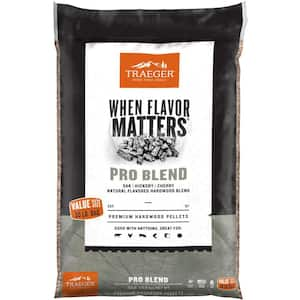
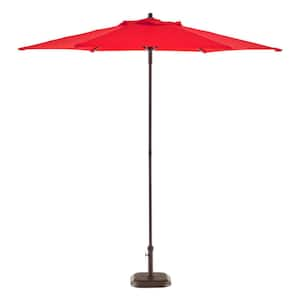
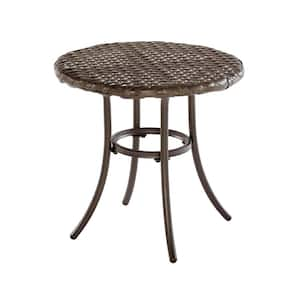
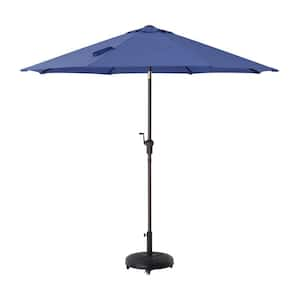
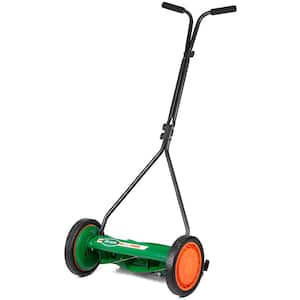
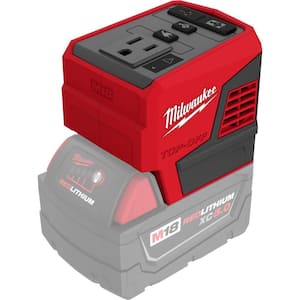
)
)
;Resize=(300,300))
)
)
/2023_P2_Rain_Barrels_Product%20Image%20(square).jpg?im=Resize=(300,300))
)
;Resize=(300,300))
)
;Resize=(300,300))
;Resize=(300,300))
;Resize=(300,300))
)
;Resize=(300,300))
/12_SOIL_B_0420_Social%20media%20(square).jpg?im=Resize=(300,300))
;Resize=(300,300))
;Resize=(300,300))
)
)
)
;Resize=(300,300))
;Resize=(300,300))
;Resize=(300,300))
;Resize=(300,300))
;Resize=(300,300))
)
;Resize=(300,300))
/18Patio_Camden_Seagrass_5pcSeating_Planters_302468736_DTL3_L_Social%20media%20(square).jpg?im=Resize=(300,300))
;Resize=(300,300))
;Resize=(300,300))
;Resize=(300,300))
;Resize=(300,300))
;Resize=(300,300))
)
)
)
.jpeg?im=Crop,rect=(363.69230769230774,1.2307692307692308,958.7692307692308,958.7692307692308);Resize=(300,300))
;Resize=(300,300))
;Resize=(300,300))
;Resize=(300,300))
)
)
;Resize=(300,300))
;Resize=(300,300))
;Resize=(300,300))
)
;Resize=(300,300))
)
)
)
)
;Resize=(300,300))
;Resize=(300,300))
)
;Resize=(300,300))
)
)
/Capello_Spring_Mum_10in_Social%20media%20(square).jpg?im=Resize=(300,300))
;Resize=(300,300))
)
)
;Resize=(300,300))
;Resize=(300,300))
)
)
)
)
)
;Resize=(300,300))
;Resize=(300,300))
;Resize=(300,300))











































